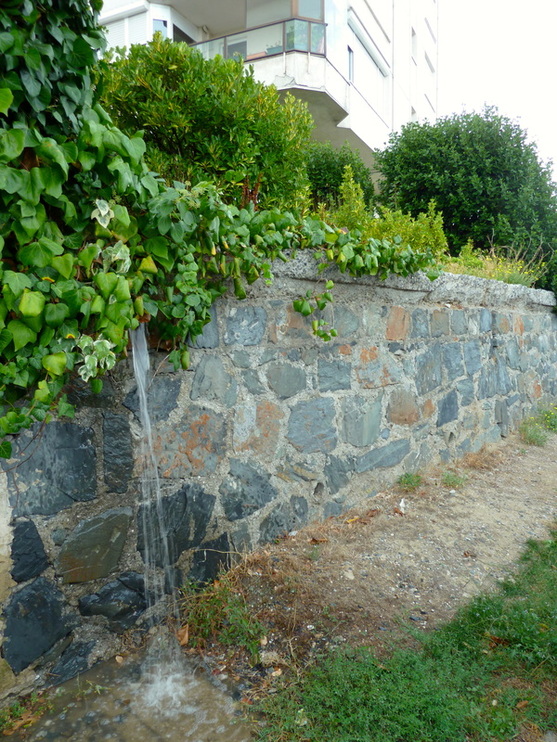
There is a time in any transition when the balance tips from what has been to what is now. Rather like when water gathers to an edge and then has enough volume and force to pour over or drip off.
So here we are gathering at the edge of our new life and beginning of the pouring over. What makes the tipping point? Who knows? Sometimes life’s changes are fought tooth and nail, resisted, hated, grieved, never accepted. These changes could be major like a death or an illness, forced move, becoming a refugee or minor like the aches of old age, the loss of possessions, the disillusion of a dream, disappointment in a faith or a friend.
But to be like water, which fills containers to overflowing and then moves on, to move on past rough banks, jagged rocks, to a place of smoothness and calm, that is a good transition!
So here we are gathering at the edge of our new life and beginning of the pouring over. What makes the tipping point? Who knows? Sometimes life’s changes are fought tooth and nail, resisted, hated, grieved, never accepted. These changes could be major like a death or an illness, forced move, becoming a refugee or minor like the aches of old age, the loss of possessions, the disillusion of a dream, disappointment in a faith or a friend.
But to be like water, which fills containers to overflowing and then moves on, to move on past rough banks, jagged rocks, to a place of smoothness and calm, that is a good transition!
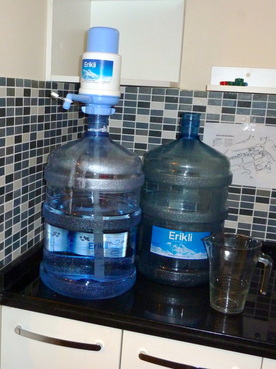
One of my duties as a Turkish housewife is the procurement of drinking water, su in Turkish. The tap water isn't actually toxic, but everyone who can possibly afford it, buys bottled water. It comes in smaller bottles of course, but the household method is to get it in 19 liter jugs. The way they feel and look is about like 5 gallons, think 5 gallon pail. There is a small hand pump that you attach after you get these delivered and into the house. When it gets close to running out the water people have to be called. I realized I was beginning to make the transition to living here when I no longer dreaded making that call in my very limited Turkish!
I can now show someone else, in this case Jesse (Yeah!) who just arrived, around. I know the transport system, bus, metro, tram, ferry, taxi, feet; the latter my personal favorite. I know where to buy most of the day-to-day essentials. I dropped off some dry cleaning and as I studied the receipt for a date of pick up the clerk said in perfect English, "tomorrow evening"!
People don't speak English everywhere, most don't around this area of Istanbul, but do much more so in the tourist areas.
We are making friends, we have been spontaneously invited into a Turkish home and given welcome water, su, again, and grapes and peppers from their garden. So much for the ugly American in a Muslim country!
People don't speak English everywhere, most don't around this area of Istanbul, but do much more so in the tourist areas.
We are making friends, we have been spontaneously invited into a Turkish home and given welcome water, su, again, and grapes and peppers from their garden. So much for the ugly American in a Muslim country!
My growing ability to cope with this new life of less responsibility and no driving daily purpose pours over into the minutes and hours of my day and I find that I don't have to be busy every minute; it is okay to just read a book or knit or look at the view. I am someone without my work, I can make friends with people of a different culture, I can get around, gather supplies, fill the unfamiliar spaces of this new life, like water.
There is an expression in Turkish "su gibi haytin olson", may your life be like water.
There is an expression in Turkish "su gibi haytin olson", may your life be like water.
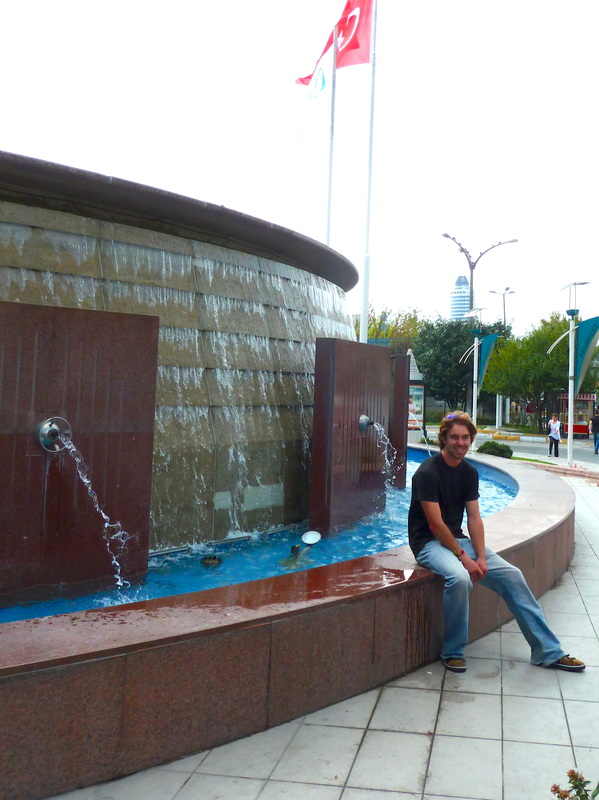
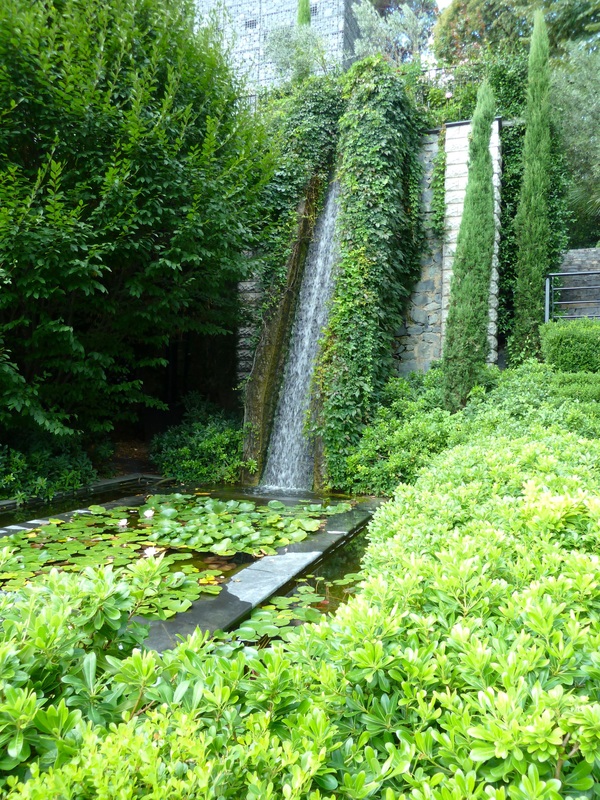
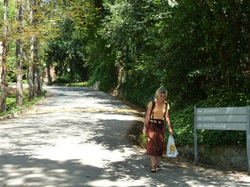
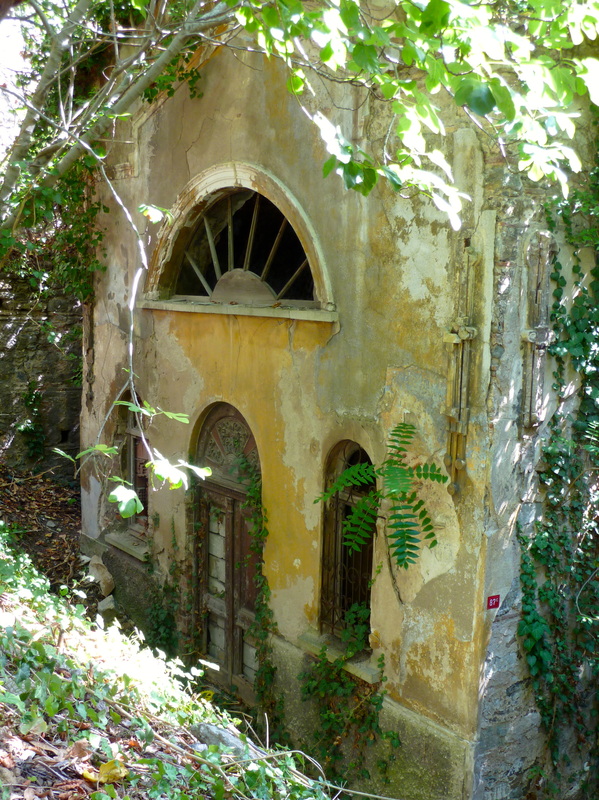
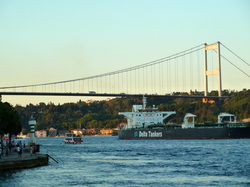
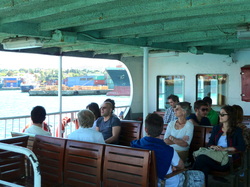
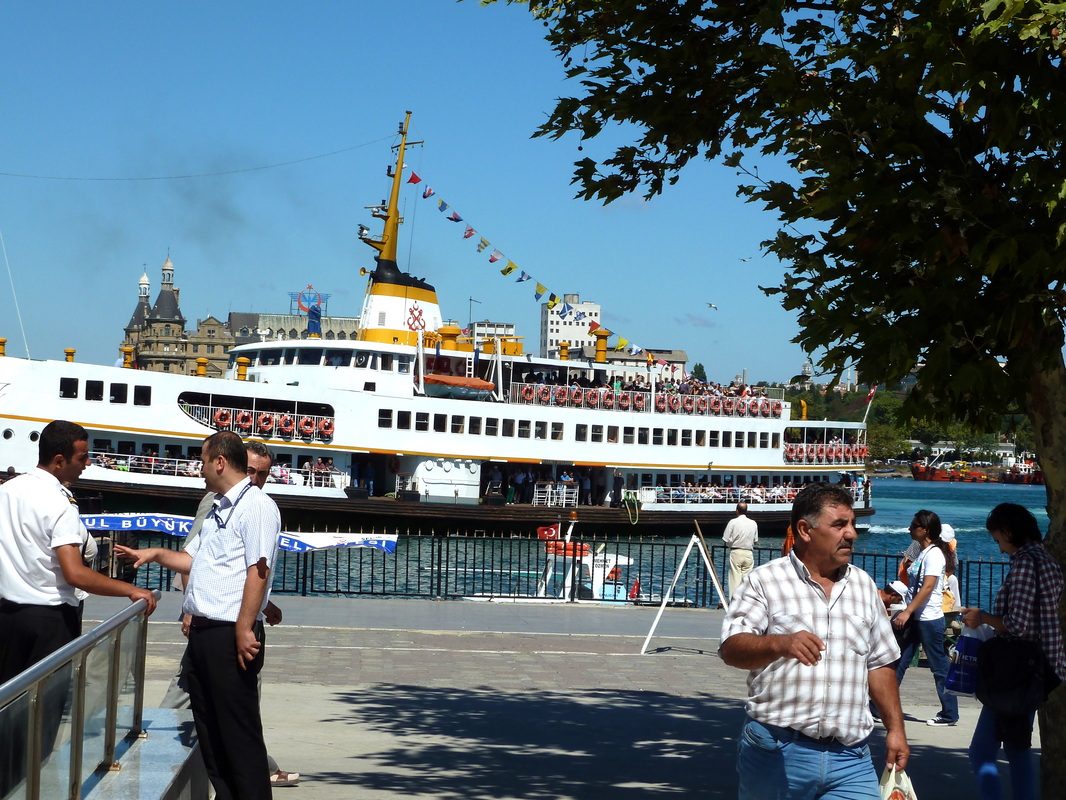
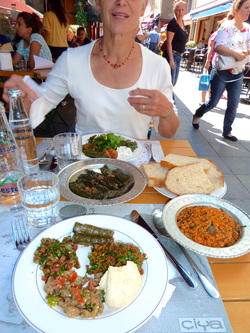
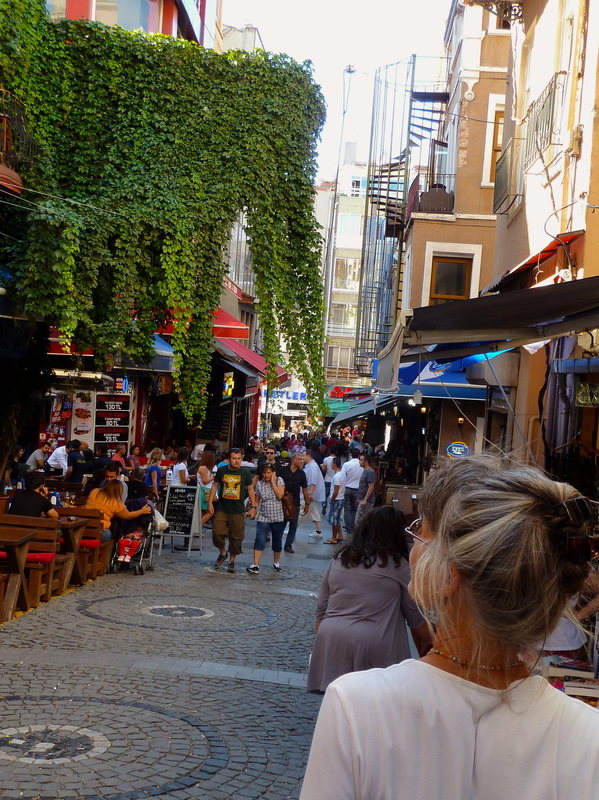
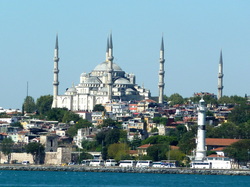
 RSS Feed
RSS Feed